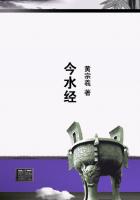"Do you know them?" demanded Jimmie suspiciously. "Are you a customer of ours?""I know them," said the young man. "They are customers of mine."Jimmie wondered in what way Carroll and Hastings were customers of the white-haired young man. Judging him by his outer garments, Jimmie guessed he was a Fifth Avenue tailor; he might be even a haberdasher. Jimmie continued. He lived, he explained, with his mother at One Hundred and Forty-sixth Street; Sadie, his sister, attended the public school; he helped support them both, and he now was about to enjoy a well-earned vacation camping out on Hunter's Island, where he would cook his own meals, and, if the mosquitoes permitted, sleep in a tent.
"And you like that?" demanded the young man. "You call that fun?""Sure!" protested Jimmie. "Don't you go camping out?""I go camping out," said the good Samaritan, "whenever I leave New York."Jimmie had not for three years lived in Wall Street not to understand that the young man spoke in metaphor.
"You don't look," objected the young man critically, "as though you were built for the strenuous life."Jimmie glanced guiltily at his white knees.
"You ought ter see me two weeks from now," he protested. "I get all sunburnt and hard--hard as anything!"
The young man was incredulous.
"You were near getting sunstruck when I picked you up," he laughed. "If you're going to Hunter's Island, why didn't you go to Pelham Manor?""That's right!" assented Jimmie eagerly. "But I wanted to save the ten cents so's to send Sadie to the movies. So I walked."The young man looked his embarrassment.
"I beg your pardon," he murmured.
But Jimmie did not hear him. From the back of the car he was dragging excitedly at the hated suit-case.
"Stop!" he commanded. "I got ter get out. I got ter walk."The young man showed his surprise.
"Walk!" he exclaimed. "What is it--a bet?"
Jimmie dropped the valise and followed it into the roadway. It took some time to explain to the young man. First, he had to be told about the scout law and the one good turn a day, and that it must involve some personal sacrifice. And, as Jimmie pointed out, changing from a slow suburban train to a racing-car could not be listed as a sacrifice. He had not earned the money, Jimmie argued;he had only avoided paying it to the railroad. If he did not walk he would be obtaining the gratitude of Sadie by a falsehood.
Therefore, he must walk.
"Not at all," protested the young man. "You've got it wrong. What good will it do your sister to have you sunstruck? I think you are sunstruck. You're crazy with the heat. You get in here, and we'll talk it over as we go along."Hastily Jimmie backed away. "I'd rather walk," he said.
The young man shifted his legs irritably.
"Then how'll this suit you?" he called. "We'll declare that first 'one good turn' a failure and start afresh. Do me a good turn."Jimmie halted in his tracks and looked back suspiciously.
"I'm going to Hunter's Island Inn," called the young man, "and I've lost my way. You get in here and guide me. That'll be doing me a good turn."On either side of the road, blotting out the landscape, giant hands picked out in electric-light bulbs pointed the way to Hunter's Island Inn. Jimmie grinned and nodded toward them.
"Much obliged," he called. "I got ter walk." Turning his back upon temptation, he waddled forward into the flickering heat waves.
The young man did not attempt to pursue. At the side of the road, under the shade of a giant elm, he had brought the car to a halt and with his arms crossed upon the wheel sat motionless, following with frowning eyes the retreating figure of Jimmie. But the narrow-chested and knock-kneed boy staggering over the sun-baked asphalt no longer concerned him. It was not Jimmie, but the code preached by Jimmie, and not only preached but before his eyes put into practice, that interested him. The young man with white hair had been running away from temptation. At forty miles an hour he had been running away from the temptation to do a fellow mortal "a good turn." That morning, to the appeal of a drowning Caesar to "Help me, Cassius, or I sink," he had answered: "Sink!" That answer he had no wish to reconsider. That he might not reconsider he had sought to escape.
It was his experience that a sixty-horse-power racing-machine is a jealous mistress. For retrospective, sentimental, or philanthropic thoughts she grants no leave of absence. But he had not escaped.
Jimmie had halted him, tripped him by the heels, and set him again to thinking. Within the half-hour that followed those who rolled past saw at the side of the road a car with her engine running, and leaning upon the wheel, as unconscious of his surroundings as though he sat at his own fireplace, a young man who frowned and stared at nothing. The half-hour passed and the young man swung his car back toward the city. But at the first road-house that showed a blue-and-white telephone sign he left it, and into the iron box at the end of the bar dropped a nickel. He wished to communicate with Mr. Carroll, of Carroll and Hastings; and when he learned Mr. Carroll had just issued orders that he must not be disturbed, the young man gave his name.
The effect upon the barkeeper was instantaneous. With the aggrieved air of one who feels he is the victim of a jest he laughed scornfully.
"What are you putting over?" he demanded.
The young man smiled reassuringly. He had begun to speak and, though apparently engaged with the beer-glass he was polishing, the barkeeper listened.















